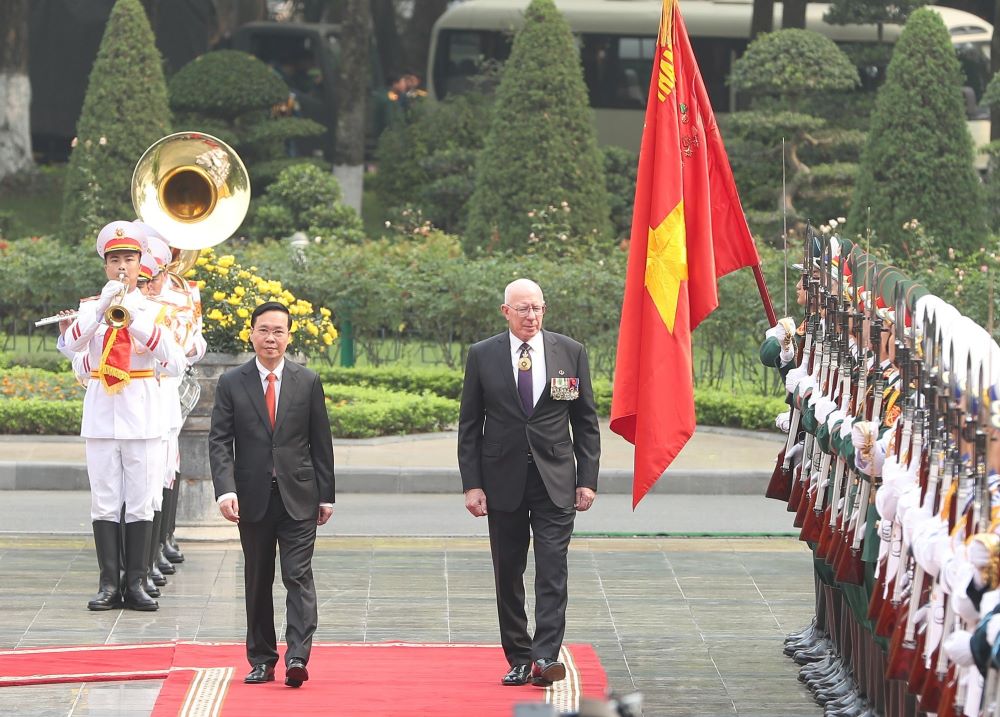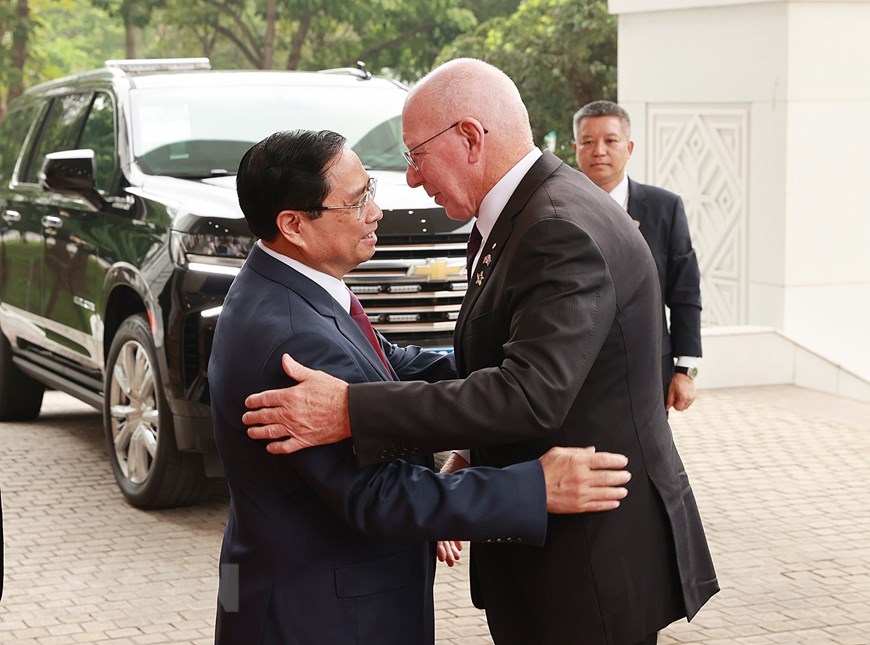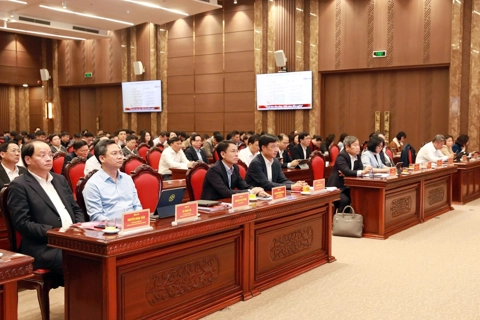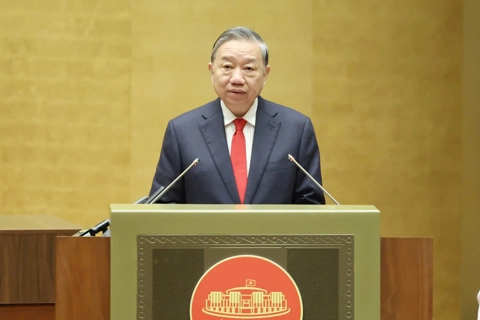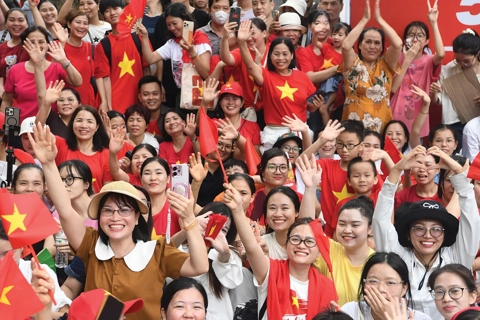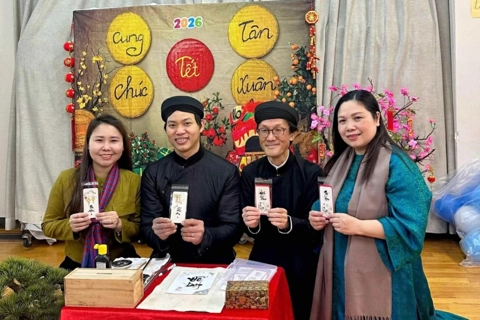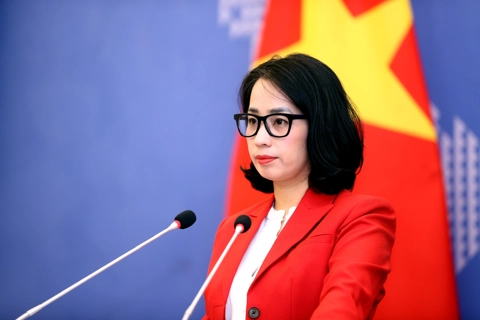Vietnam-Australia to upgrade ties later this year: Carl Thayer
Vietnam and Australia relations have grown incredibly and cover a wide range of issues with people-to-people exchange being viewed as the most significant.
Vietnam and Australia are currently celebrating the 50th anniversary of diplomatic relations which are likely to be lifted later this year, Professor Carl Thayer, Southeast Asia regional specialist, has said.
“It is expected that Australia and Vietnam will agree to raise bilateral relation from a strategic partnership to a comprehensive strategic partnership later in the year,” Carl Thayer, Emeritus Professor at the University of New South Wales (UNSW), told The Hanoi Times.
The comment was made as Australia's Governor General David Hurley is on a visit to Vietnam, the first of Australian head of state to visit Vietnam since 2018.
According to Prof. Thayer, under Australian Constitution, the Governor General is the head of state. The Governor General is appointed by the Monarch (King or Queen of Australia) on the recommendation of the Prime Minister for a term of five years. The Prime Minister is the head of government.
| Vietnam's President Vo Van Thuong (L) and Australia's Governor General David Hurley in Hanoi on April 4. Photo: VGP |
Governor General Hurley was received by General Secretary Nguyen Phu Trong, Prime Minister Pham Minh Chinh, and Chairman of the National Assembly Vuong Dinh Hue. He attended a number of events in Hanoi and Ho Chi Minh City to promote bilateral relations and people-to-people ties.
The professor said the 50th anniversary will be marked by many official events including the exchange of high-level visits.
“It is noteworthy that Governor General David Hurley is the first official visitor to be received by Vietnam’s new President, Vo Van Thuong. President Thuong will pay a reciprocal visit to Australia later in the year,” he added.
Governor General Hurley’s visit is likely to be followed by exchange visits by the two prime ministers and other senior officials, the professor noted.
In his speech delivered in Hanoi on April 5, Governor General Hurley said the relationship has grown tremendously over the past 14 years since his first visit to Vietnam in 2009 when Vietnam and Australia were on the verge of becoming Comprehensive Partners.
He said the two countries are “working together towards achieving a Comprehensive Strategic Partnership.”
| Vietnam's Prime Minister Pham Minh Chinh and Australia's Governor General David Hurley in Hanoi on April 5. Photo: VNA |
Multisectoral relations
On this occasion, Governor General Hurley said that both countries are working together to support their shared vision for an Indo-Pacific region that is stable, prosperous, and resilient—and where sovereignty and international law are respected.
He affirmed that they work together on “many issues, including economic, political, security, climate cooperation, education, and defense.”
Specific areas of cooperation include peacekeeping missions, cultural ties with the Vietnamese people. More than 300,000 Australians of Vietnamese descent live in Australia and Vietnamese is the fourth most commonly spoken language in Australian homes after English.
In addition, Vietnam and Australia are opening up new flight routes, in particular with VietJet preparing to launch its first service to Melbourne on April 8, followed by direct flights to both Sydney and Brisbane. This brings the total number of direct flights to 17.
People-to-people links have been forged. More than 80,000 Vietnamese men and women have studied in Australia over the past 50 years, including more than 6,500 on Australian Government scholarships.
In terms of economic ties, Governor General Hurley mentioned some of the historical highlights of Australian investment in Vietnam RMIT was the first foreign university, ANZ was one of the first international banks, and Telstra built the first satellite ground stations and laid the first undersea telecommunication cable, helping to connect Vietnam to the world. An Australian firm helped Vietnam build the first 500-kilo-volt high-voltage transmission line, connecting the power system between North and South and creating the backbone of the modern electricity grid.
“Vietnam has ambitious economic goals, and Australia has the capabilities to help meet these ambitions. Likewise, Australian companies can gain much from Vietnam’s dynamism and creativity,” he commented, noting that it is a mutually beneficial partnership that will only grow stronger because of the drive and connections between the people.
In 2021, the two countries launched the jointly drafted Australia-Vietnam Enhanced Economic Engagement Strategy (EEES) to invigorate their shared commitment to double two-way investment and become top-ten trading partners.
As a result, in 2022, two-way trade reached US$15.7 billion, up 27% on year, ranking Australia as the 7th largest trading partner of Vietnam and Vietnam as Australia’s 10th largest trading partner.
In a meeting between Vietnam’s Prime Minister Pham Minh Chinh and Governor General Hurley in Hanoi on April 4, the two sides agreed to strengthen relations in English teaching, education, transnational crime prevention, cybersecurity, tourism, agriculture, climate response, innovation, gender equality, and inclusion.
The two leaders highlighted the establishment of the Vietnam-Australia Center in Hanoi and the expansion of RMIT in Vietnam.
On regional issues, Governor General Hurley said Australia supports ASEAN’s stance on the South China Sea issues. The country agreed that the parties should work to maintain peace, stability, security, and freedom of navigation and overflight in the South China Sea, respect international law, particularly the United Nations Convention on the Law of the Sea (UNCLOS) 1982; seriously implement the Declaration on the Conduct of Parties (DOC); and develop an effective Code of Conduct (COC) in accordance with international law.
Regarding the bilateral defense ties, Prof. Thayer said Australia and Vietnam have a defense relationship that extends back to 1999. Australia and Vietnam have a defense relationship that extends back to 1999. It has been strengthened by successive partnership agreements that have seen bilateral relations evolve from a comprehensive partnership to a strategic partnership in 2018.
Regular goodwill visits to Vietnamese ports by the Royal Australian Navy (RAN) have contributed to building up the defense cooperation relationship.
The current visit by three RAN naval ships (HMAS* Canberra, HMAS Anzac, and HMAS Sirius) is part of a larger Indo-Pacific Endeavour program inaugurated by Australia in 2017. Australian naval ships are deployed to the region to train and exercise with the navies of multiple countries.
The joint statement on the establishment of their strategic partnership states: “We confirm our increasing strategic relations and shared regional interests and reaffirm our commitment to closer defense, law and justice, intelligence and security cooperation, contributing to the peace, stability, and development of the region.”


